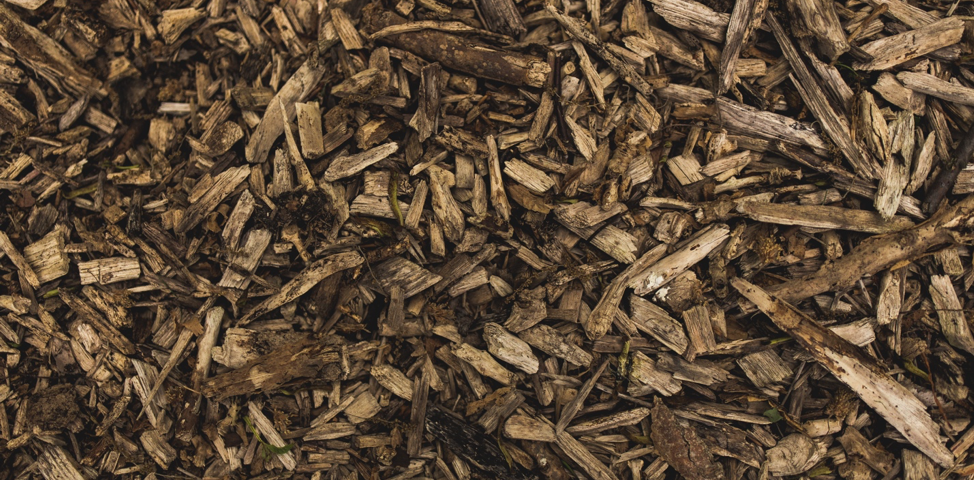
6 Landscaping Tips from the Pros
February 27, 2019
How to Make the Most out of Compost for Landscaping
February 27, 2019Gardening and landscaping projects are a great way to get outside in the great outdoors and create something truly special. There are so many great landscaping products that you can choose from these days. The possibilities for creating a garden oasis or commercial landscaping that with a one of a kind appearance are pretty much endless. It’s easy to get overwhelmed in the sheer amount of landscaping products on the market, but there’s no need to feel that way. Each option in the landscaping world has its own uses and benefits, which is why it helps to know which ones are best for your particular project before beginning. Mulch is one of the most well-known landscaping products on the market, and for good reason. The benefits of mulch are numerous, which is why we’ve prepared the following guide that details what exactly mulch is and why you should be taking advantage of its powerful properties for your landscaping projects.
What is Mulch?
Mulch is a broad term defined as materials that are used to spread around a plant or over a plant in order to enrich its soil. Mulch is both a noun and a verb, as the act of spreading or covering an area with mulch is called mulching. If you’ve ever had a garden or yard before, you likely have used mulch to help the plants in that area grow and flourish. From a high-level view, people usually choose from two main types of mulch, organic mulch, and inorganic mulch. Let’s take a look at the main differences between the two below.
Organic Mulch
Organic mulch comes in many different forms. They are materials that decompose over a period of time to improve the quality of a certain area’s soil, drainage, structure, and nutrients as they decompose. The thing to remember about organic mulch is that it is materials that are constantly decomposing, which means you will need to keep an eye on it and replenish it when necessary. The majority of landscape professionals go with organic mulch on their jobs because of the great benefits that they provide to the soil. Some of the classic examples of organic mulch are compost mixes, bark, evergreen needles, newspapers, leaves, hardwood chips, and softwood chips.
Inorganic Mulch
If you invest in inorganic mulch, the good news is that you won’t have to constantly replenish it. That’s because inorganic mulch is made from inorganic materials that simply don’t decompose. This type of mulch isn’t really intended to improve the soil that it’s placed on. It’s more for aesthetic effects and keeping weeds at bay. Some of the well-known examples of inorganic mulch are stones, rocks, lava rocks, rubber, and crusher dust. Inorganic mulch can add a very unique feel to an area of landscape and can also absorb and reflect heat. Those heat-related properties can provide benefits for areas that you want to plant fruits and vegetables during the spring, as inorganic mulch can heat the soil up. On the flipside, when the weather gets to be extremely dry and hot, this mulch type can be a detriment to any plant life in the mulched area.
Now that we have discussed what mulch consists of, let’s go over some of the great reasons why an investment in mulch is worth its weight in gold.
4 Fantastic Benefits of Mulch to Keep in Mind
Placing a protective mulch barrier around any plants you have or over bare soil can provide tons of great benefits. In fact, if you are looking to build a garden or landscaping that really thrives, mulch is an essential ingredient.
Here are four fantastic benefits you can expect by using mulch:
Mulch Benefit #1: Promotes Healthy Soil
All plants and vegetation need the right soil to grow. Soil can be tricky because every area of the landscape has a different soil composition. That doesn’t mean that you can’t grow where you want, especially if you are incorporating mulching. One of the primary benefits of using organic mulch is that it promotes healthy soil. As the organic materials decompose, tons of nutrients are released into the soil below that plants absolutely love. You can’t go wrong with using high-quality mulch to create soil that is ideal for the growth of plants of all types.
Mulch Benefit #2: Prevents Erosion
Landscaping and gardening often times turns into a battle against the elements. There’s nothing worse than working hard to get the soil nutrient-rich and ready for plants to flourish only to have it erode away after a heavy storm or rainy season. That’s where mulching benefit number two comes into play. Using mulch can help to prevent erosion and keep water trapped in the soil. It literally helps to reduce the impact of falling rain so that your soil doesn’t wash away.
Mulch Benefit #3: Keeps Those Pesky Weeds Away
Weeds can cause big issues for gardeners and landscapers. They can also be a big eyesore for gardeners. The great thing about using mulch is that it can help keep those pesky weeds at bay. Mulch is literally a barrier that can stop weeds from growing in and taking over the landscaping area.
Mulch Benefit #4: Natural Pest Control
Pests like termites can wreak havoc on a garden or lawn. They are called pests for a reason, after all. Instead of spraying your entire yard or garden with harmful chemicals that hurt the environment, try mulching instead. Specific types of mulch have natural oils and fragrances that pests absolutely hate. The best type of mulch for counteracting pests is usually cedar bark thanks to a special insect repelling oil.
Buy the Best Mulch on the Market from Cal Blends Soil Inc
Now that you know how powerful of an ally mulch can be for all of your gardening and landscaping projects, why not purchase the best mulch on the market for the best prices? Cal Blends Soil Inc offers different types of mulch in bulk at a great price. Contact us today to place your order!


